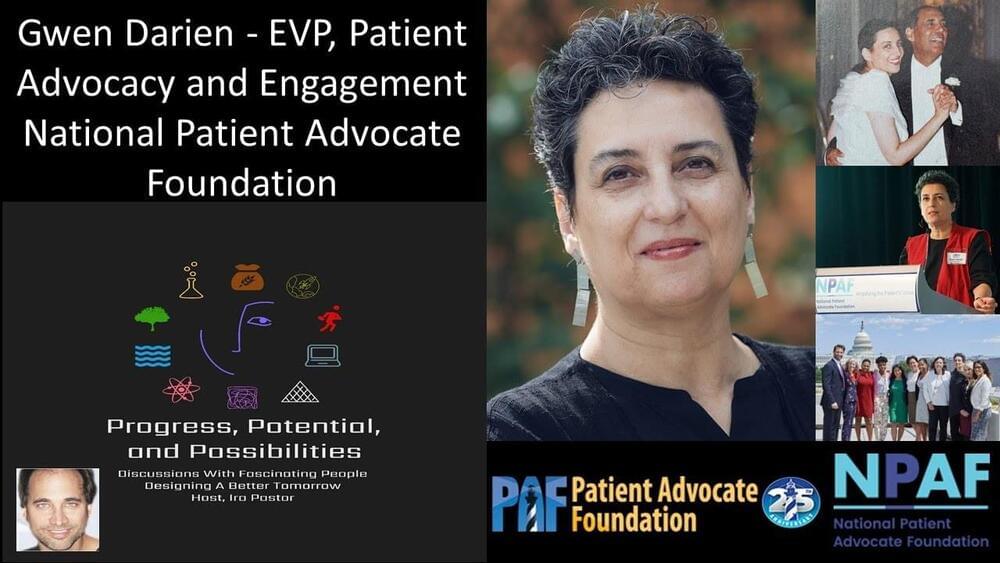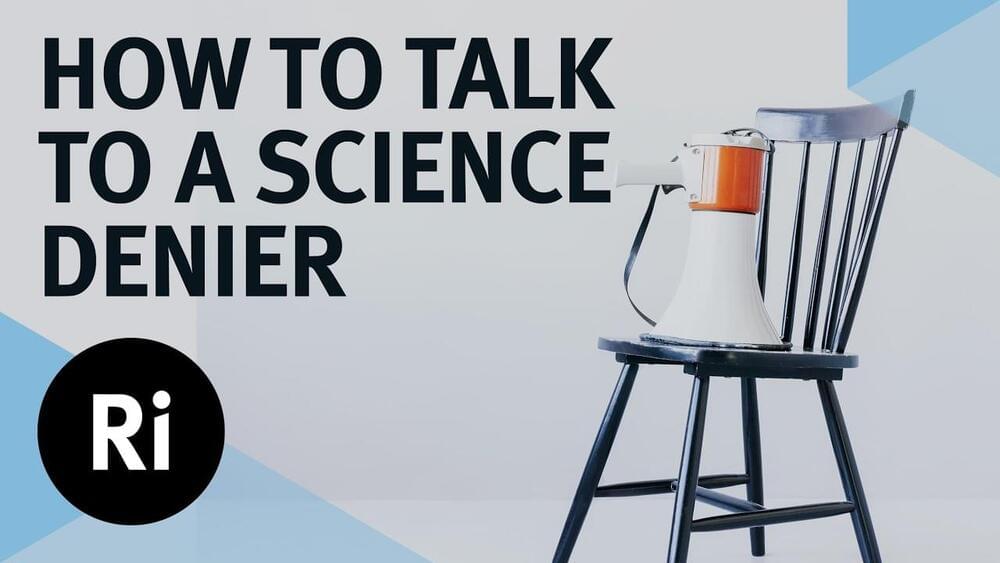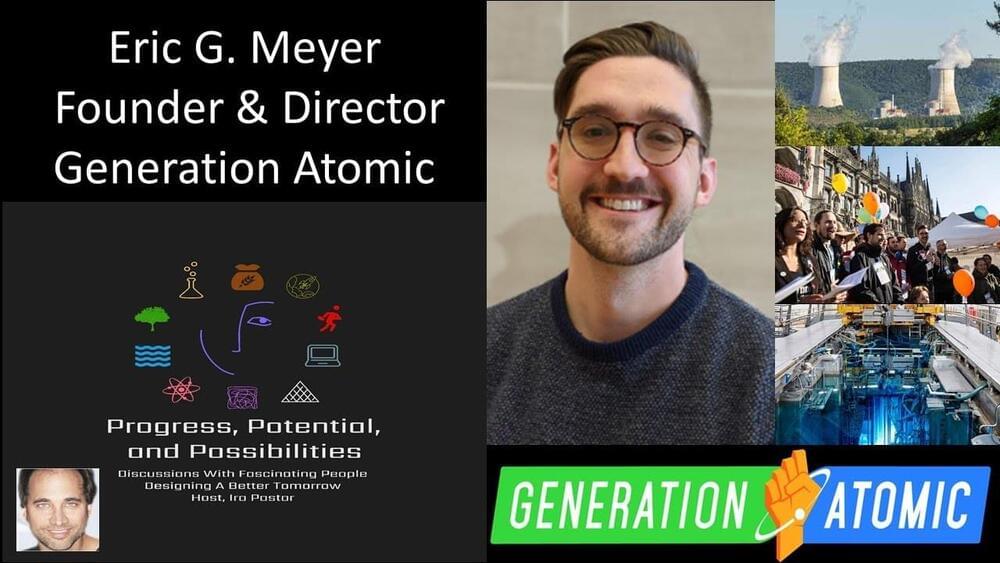Nov 6, 2021
Gwen Darien — EVP, Patient Advocacy and Engagement, National Patient Advocate Foundation
Posted by Ira S. Pastor in categories: biotech/medical, finance, health, policy
EVP, patient advocacy & engagement, national patient advocate foundation.
Gwen Darien is Executive Vice President for Patient Advocacy and Engagement, at the National Patient Advocate Foundation (https://www.npaf.org/), an organization with a mission of bringing patient voices to health system delivery reform, developing and driving initiatives promoting equitable access to affordable quality health care, and prioritizing the patient voice in health system delivery reform to achieve person-centered care. She is also Executive Vice President at their sister organization, Patient Advocate Foundation (https://www.patientadvocate.org/), a national non-profit organization which provides case management services and financial aid to Americans with chronic, life threatening and debilitating illnesses.

















